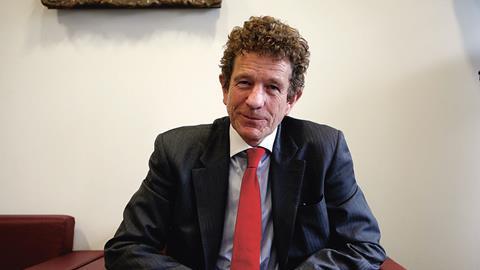Former justice minister Lord Faulks has urged the government to stand up to European Union negotiators over the issue of the jurisdiction of the European Court of Justice.
EU leaders have suggested that the ECJ should continue to have an influence on the UK after Brexit is enacted as part of a bid to protect the rights of citizens living in Britain.
But Faulks said Brexit ministers must resist any attempt to keep the UK under ECJ jurisdiction, even during any transition period. Speaking at a Brexit fringe event of the Conservative party conference, he said EU officials will know the issue is ‘annoying’ to the British and will seek to maintain the status quo for as long as possible.
‘The role of the ECJ is going to be a bargaining chip as EU negotiators regard it as something we regard as important,’ he said. ‘It is quite clear we should finish with the ECJ when we leave the EU and not continue.’
Faulks appeared to suggest the position must be clarified to ensure UK judges know exactly what they must favour. ‘We should not leave our courts too much room for manoeuvre in case they show too much liking for the jurisdiction of the ECJ,’ he added.
Prime minister Theresa May has said the ECJ should have no jurisdiction over the UK after Britain leaves the EU, but the situation is muddied by uncertainty over the possible two-year transition period.
In her Florence speech last month, May said she wanted UK courts to be able to ‘take into account’ the judgments of the ECJ with a view to ensuring consistent interpretation.
Martin Howe QC, from the group Lawyers for Britain, said many in the UK legal profession are struggling to come to terms with the prospect of Brexit, but they would quickly come round to it once the process is complete.
‘Some people are suggesting the ECJ should continue to pronounce on [UK law] in a way which binds the UK – even members of my profession,’ said Howe. ‘Many members of the profession are small ‘C’ conservatives [but] in two years they will think having a foreign court jurisdiction was the most outrageous thing they have heard in their lives.’




























5 Readers' comments